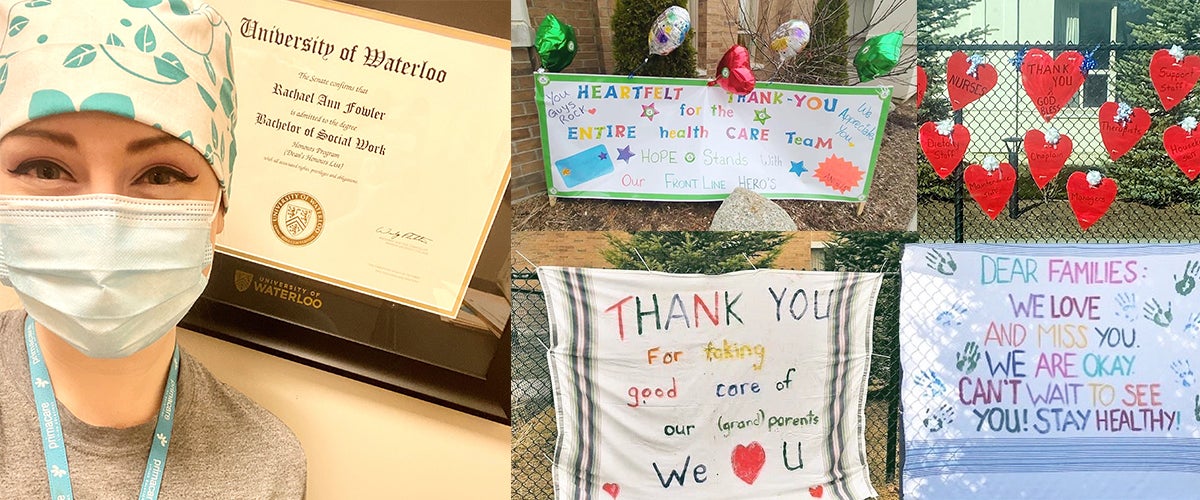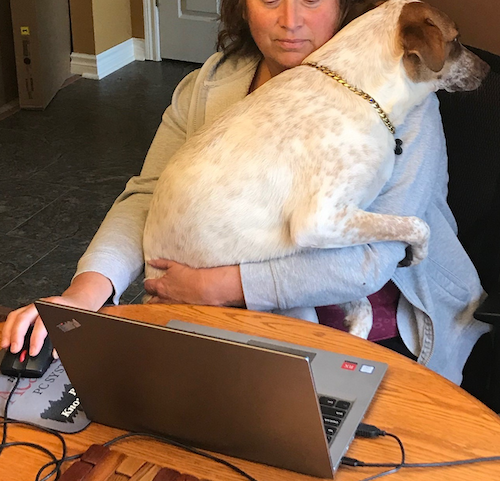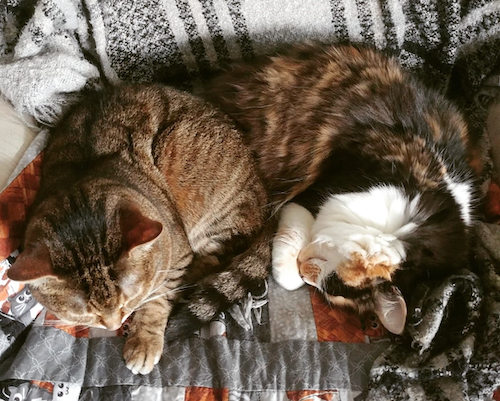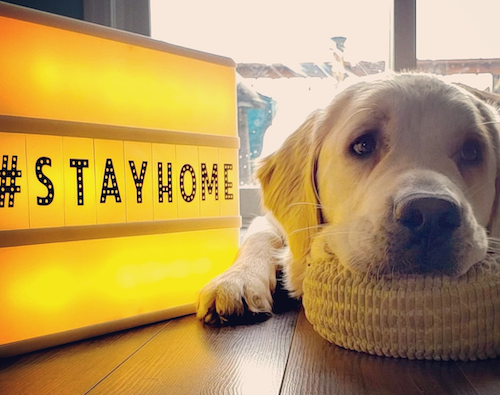Editor:
Brandon Sweet
University Communications
bulletin@uwaterloo.ca
Q and A with the experts: restarting the economy

The University of Waterloo has a number of experts available for comment on various aspects of the COVID-19 pandemic.
This week governments in Saskatchewan and Quebec announced timelines for the re-opening of their economies. In Ontario and Alberta, a structure for what re-opening will look like was also outlined. But what do these staged re-openings mean for economic recovery?
Professor Joel Blit answers our questions.
How effective is it for the general health of the economy to have a re-opening done in stages?
Firms like predictability, something that is in short supply these days. It helps them plan their hiring, investments, and other business decisions. Having a clear plan for reopening is therefore important. Unfortunately, at this point, the plan is too vague to be of much use and little has been offered in terms of timelines.
The sooner we reopen, and the more fully we do it, the better for the economy. The gradual reopening is being done out of caution (health reasons), not for economic reasons.
How long do you think it will take the economy to fully recover?
Before this epidemic hit, we were in the longest economic expansion in recent history. We are now likely in the midst of the deepest recession since at least the Great Depression (we may even surpass that). The U.S. economy shrank by 4.8 per cent in the first quarter due to decreased consumer spending and lower business investment. We are likely to see similar or even larger drops in economic output in Canada since we are more exposed to a fall in commodity prices, and our COVID-19 measures were overall more stringent than those imposed in the United States.
Hopes for a “V” shaped recovery are misplaced. There remains too much uncertainty for firms to rehire workers or make significant investments. Consumers’ spending is likely to remain depressed for a while, as they will have accumulated even more debt, and they are likely to be scarred by the crisis.
What are some things that the government should do to help the economy (apart from the COVID-19 supports already in place)?
As we move forward, a driving tenet should be to “never waste a good crisis”. There is an emerging understanding that recessions are needed so that economic resources are redeployed more effectively and so that firms trim costs and develop capabilities for the future.
Government interventions are currently rightly focused on supporting businesses so not too many go under, subsidizing payroll so not too many Canadians lose their jobs, and supporting Canadians who did lose their job. In time, we must shift the focus to more strategic investments for the future. The current supports need to be removed so that firms have incentives to reinvent themselves, developing new products, and adopting the latest technologies. Government may even want to directly incentivize investments in innovation and automation, while at the same time supporting Canadian workers whose jobs will be disrupted. We are undergoing an AI and robotics revolution that will change the future of work. The current crisis is an opportunity to invest in this future and emerge out the other end stronger.
Joel Blit is an associate professor in the Economics department who specializes in the economics of innovation, technology clusters, Intellectual Property, entrepreneurship, and international trade.
Social Work in the age of COVID-19

Renison alumnus Rachel Fowler supports patients in a long-term care home.
By Nancy Schnarr. This article originally appeared on the Renison University College website.
“If I wasn’t here, I would be wishing I could be.”
Rachael Fowler graduated from Renison’s Bachelor of Social Work program just 11 months ago, but she is already a veteran of working through a pandemic. Fowler is a social worker in a long-term care home in London; one of the highest risk fields to be in during the current COVID-19 outbreak.
Long-term care homes are the subject of media focus, as Canadian cases of COVID-19 have escalated in many such facilities. Fowler works in a home of just under 200 beds with (at the time of our interview) 13 reported cases; 6 of which are now recovered, and 3 have resulted in death. For Fowler, the impact of COVID-19 is felt daily, and is punctuated by the many changes to her routine. Her day now starts by donning full Personal Protective Equipment (PPE) that covers every area of her face, except her eyes. Those eyes have witnessed so much in the past seven weeks. She has witnessed first-hand the trauma of a resident receiving a positive COVID-19 test result, and she has counselled her clients and their families in dealing with this news. On a typical shift, if there is such a thing, her duties will include family mediation during Zoom calls, communication with doctors, and trauma and grief counselling. Through it all, Rachael remains upbeat and positive for the sake of her clients.
Fowler describes the moments spent with COVID-19 patients as difficult but important. She provides the comfort that she would wish for her own family members. “My residents feel safe with me, and I am sometimes the one person they can see, now that they can’t see their families," she explains. "If I can make one of their days better, and take away some of their fear, I’ve done my job."
Fowler’s work in a long-term care home has personal inspiration. Her grandfather recently passed away and in their last conversation (held by video chat) he challenged her to keep fighting for those who were still fighting to live. Sadly, Fowler was unable to see her grandfather during his last days; her calling requires her to isolate from her own family so she can continue to be there for her residents. Her grandfather’s death, Fowler says, has reinforced her passion for her work. “I just focus on my clients and try to help make them comfortable and calm. Papa’s death put everything into perspective for me.”
There is some light, however, during this challenging time. Fowler describes the community support as amazing – from volunteer enquiries to the posters that line the fence of the property, and positive messages chalked on the pavement in the parking lot, each gesture helps her remember that the work she is doing is important – and would have made her Papa proud.
Human Rights, Equity and Inclusion answers your questions today
A message from Human Rights, Equity and Inclusion (HREI).

Ask Us Anything is a virtual series hosted by the Human Rights, Equity and Inclusion Unit (HREI) that creates space for open dialogue and further deepens community at University of Waterloo. The first in this series, Ask Us Anything: HREI and Your Campus is happening today from 12 noon to 12:45 p.m.
The WebEx virtual event will feature a representative from each Office within HREI, and will give students, staff and faculty members the opportunity to ask questions related to HREI on campus. This is a free event and no pre-registration is required.
Tips for the best WebEx experience:
- Avoid running too many applications on your computer at the same time.
- Avoid using streaming services, like Netflix or video calling, on your internet network during the talk.
- Make sure you have:
- a stable internet connection (preferably a hardwired ethernet connection);
- computer speakers (external or built-in);
- an internet browser (Google Chrome or Mozilla Firefox are preferred).
Testing your system ahead of time:
If you’re new to WebEx, or not sure if you have everything you need, you can run a system test. Try launching the WebEx test meeting. This will determine if you can successfully connect to the WebEx application.
Information about future events in the virtual lunchtime series will be published as they become available.
There's no escape from the Good Buddies of the University

"This is my dog, Spirit," writes Dana Church, manager of research at the Waterloo Centre for the Advancement of Co-operative Education (WatCACE). "She makes sure I take walk and fetch breaks during the day. She is excellent at finding good fetching sticks."

"This is my son’s dog, Paco, coming for a snuggle and reminding me that we’re all in this together!" writes Christine Schwendinger, academic administration coordinator at St. Jerome's University.

"This is Talullah and Cali (can you guess which is which?)," writes Samantha Goodman, research scientist in the School of Public Health and Health Systems. "They remind me how great it would be to be sleeping by the fire rather than working."

"Meet Dart [@DartnallTheDog]!" writes Cyntia Brătan, coordinator, international student experience at the Student Success Office. "Although he would much rather be outside himself, he is strongly encouraging everyone to #StayHome. He looks forward to attending all (and any) dog-park-related events, however in the meantime, he provides great support in the planning process of upcoming events for international students!"

"This is Allie, my 10 year old golden doodle," writes Heidi Panchaud, low vision therapist at the Centre for Sight Enhancement at the School of Optometry & Vision Science. "She's a little damp from an early morning walk, but ready to watch me work until lunch time when her internal clock says it's exercise and treat time!"
Beyond the Bulletin Podcast Episode 43

The latest episode of the Beyond the Bulletin Podcast is now live. Craig Janes, of the School of Public Health and Health Systems, tells us the effect physical distancing can have on the spread of COVID-19 and why we must keep it up. The optometry clinic offers urgent eye care for those without an optometrist. Submit your questions for the upcoming president’s town hall. There's a new pharmacy director and two new Royal Society fellows. All of that and it was Star Wars Day, too.
Link of the day
75 years ago: The Liberation of the Netherlands and V-E Day
When and Where to get support
Students can visit the Student Success Office online for supports including academic development, international student resources, leadership development, exchange and study abroad, and opportunities to get involved.
Instructors can visit the Keep Learning website to get support on adapting their teaching and learning plans for an online environment.
Employees can access resources to help them work remotely, including managing University records and privacy of personal information
Here are some tips for staying healthy while working from home:
The Writing and Communication Centre has gone virtual to provide assistance.
We understand that these circumstances can be troubling, and you may need to speak with someone for emotional support. Good2Talk is a post-secondary student helpline based in Ontario, Canada that is available to all students.
If you feel overwhelmed or anxious and need to talk to somebody, please contact the University’s Campus Wellness services, either Health Services or Counselling Services.
The Library has published a resource guide on how to avoid information overload.
The Faculty Association of the University of Waterloo (FAUW)continues to advocate for its members. Check out the FAUW blogfor more information.
The University of Waterloo Staff Association (UWSA) continues to advocate for its members. Check out the UWSA blog for more information.
WUSA supports for students:
Food Support Service food hampers are currently available from the Turnkey Desk on weekdays from 9:00 a.m. to 4:00 p.m. in the Student Life Centre. If you have any questions please email us at foodsupport@wusa.ca.
MATES – Providing general online Peer Support via Skype to undergraduate students. To set up an appointment, please contact mates@wusa.ca
Empower Me is a confidential mental health and wellness service that connects students with qualified counsellors 24/7. They can be reached at 1-844-741-6389.
Glow Centre - Providing online Peer Support for the LGBTQ2+ community via Skype to Undergraduate students. To set up an appointment, please contact glow@wusa.ca
The Women’s Centre – Providing online Peer Support via Skype to undergraduate students. To set up an appointment, please contact womenscentre@wusa.ca
RAISE – Providing online Peer Support via Skype to undergraduate students. To set up an appointment, please contact raise@wusa.ca.
Centre for Academic Policy Support - CAPS is here to assist Waterloo undergraduates throughout their experience in navigating academic policy in the instances of filing petitions, grievances and appeals. Please contact them at caps@wusa.ca . More information at http://wusa.ca/caps
WUSA Commissioners who can help in a variety of areas that students may be experiencing during this time:
- Equity – equity@wusa.ca
- Co-op and Experiential Affairs – coop.affairs@wusa.ca
WUSA Student Legal Protection Program - Seeking legal counsel can be intimidating, especially if it’s your first time facing a legal issue. The legal assistance helpline provides quick access to legal advice in any area of law, including criminal. Just call 1-833-202-4571.
When and Where (but mostly when)
Please note: The University has suspended all in-person events until further notice. Please contact the event organizers to confirm whether the event has shifted to an online mode of delivery.
If you have listed an event with the Daily Bulletin and need to cancel, postpone or modify the listing, please send an email to bulletin@uwaterloo.ca.
If you have an upcoming event that has not yet appeared in the When and Where listing, please send an email to bulletin@uwaterloo.ca to confirm the event's status.
Warrior Recreation online workouts, Monday to Friday, three times a day at 10:30 a.m., 3:00 p.m. and 8:00 p.m. Workouts will be broadcast live through ZOOM Video Communications.
Writing and Communication Centre virtual writing cafés, Tuesdays, 9:00 a.m. to 12:00 p.m., Wednesdays, 2:00 p.m. to 4:30 p.m., Fridays, 9:00 a.m. to 12:00 noon.
Workplace Yoga Program is live-streaming classes on Tuesdays and Wednesdays from 12:05 p.m. to 12:50 p.m. in April and May.
Ask Us Anything: HREI and Your Campus, Friday, May 8, 12:00 noon to 12:45 p.m.
Centre for Extended Learning Course, Introduction to Bongo (Technical Session), Friday, May 8, 1:00 p.m.
NEW - Spring term begins, Monday, May 11.
Faculty of Mathematics International Women in Mathematics Day digital celebration, Tuesday, May 12, 7:30 a.m. to 7:30 p.m. Register online.
Human Rights, Equity and Inclusion seminar, Allyship – Your Support Role, hosted by Canadian Centre for Diversity and Inclusion, Tuesday, May 12, 1:00 p.m. to 2:00 p.m.
Navigating the Food Environment during COVID-19 with Nicole Pin, Dietitian, Food Services, Wednesday, May 13, 11:00 a.m.
COVID-19 Ask Our Experts Community Talk, "Long-term care and our loved ones," Wednesday, May 13, 12:00 p.m. Register now.
AccessAbility Workshop, "Getting the most out of your syllabus and mapping out your term," Wednesday, May 13, 2:00 p.m.
NEW - Victoria Day holiday,Monday, May 18.
NEW - University Senate meeting, Tuesday, May 19, 3:30 p.m., online.
COVID-19 Ask Our Experts Community Talk, "Social media and our quarantine life," Wednesday, May 20, 12:00 p.m. Register now.
President's Virtual Town Hall, Wednesday, May 20, 1:30 p.m., online.
Concept by Velocity presents "What's Your Problem?"Wednesday, May 20, 6:30 p.m., online.
Akindi Live Training (Webinar), Tuesday, May 26, 1:00 p.m. to 2:00 p.m.